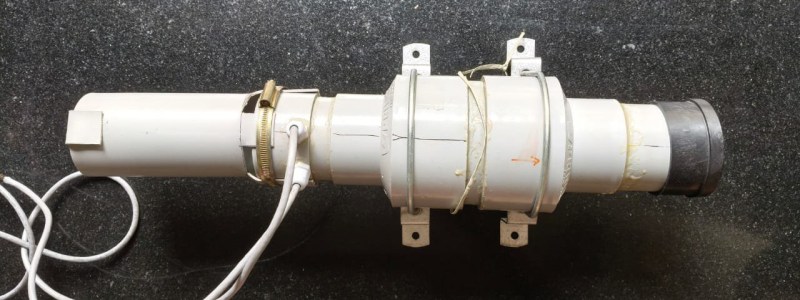Top 10 Startup Funding Sources for New Entrepreneurs
Posted on : May 28, 2025
By
Tech World Times
Business
Rate this post
Starting a new business is exciting. But money is often the first big hurdle. Without funds, it’s hard to build products, hire staff, or run ads. That’s where Startup Funding becomes important. It helps entrepreneurs turn ideas into real businesses. In this article, we share the top 10 startup funding sources for new entrepreneurs in 2025.
1. Personal Savings
Most founders start with their own money. It’s simple and quick. You don’t owe anyone else. Using savings shows you believe in your idea. But only use what you can afford to lose. Avoid risking your rent or emergency funds.
2. Friends and Family
This is a common early funding source. People who know and trust you may help. They might give you money or offer loans. But always keep it professional. Write down terms and make repayment plans clear. It avoids confusion and protects relationships.
3. Angel Investors
Angel investors are wealthy individuals who support startups. They often invest in early stages of business. They bring both money and advice. They usually take equity in return. Search platforms like AngelList or attend startup events to meet them.
4. Venture CapitalVC firms invest big money in fast-growing startups. They look for high returns and innovation. VC funding is best for tech or scalable startups. They take equity and sometimes want a say. It’s competitive, so prepare strong pitch decks.
5. Business Incubators and Accelerators
These programs help startups grow fast. They offer funding, training, and mentorship. Some popular examples are Y Combinator and Techstars. They often end with demo days to attract investors. You may give up a small equity share.
6. Crowdfunding
Crowdfunding is when many people fund your idea online. Sites like Kickstarter and Indiegogo make this easy. You offer early access or rewards instead of equity. It works well for products people can see. Be sure to promote your campaign heavily.
7. Bank Loans
Banks offer loans for startups and small businesses. They usually require a credit check and a business plan. Interest rates vary. Some banks need collateral. If approved, loans give quick access to funds. This option doesn’t dilute your ownership.
8. Government Grants
Many governments support small businesses. They offer grants for innovation, research, or job creation. Grants don’t require repayment or equity. But they involve paperwork and clear guidelines. Search local government or small business websites.
9. Business Competitions
Pitch competitions can offer funding and exposure. Entrepreneurs present their ideas to a panel of judges. Winners receive cash prizes or investment offers. Even if you don’t win, you gain feedback. Search for startup contests in your city or industry.
10. Corporate Venture Funds
Big companies often invest in small startups. They want access to new ideas and technologies. These corporate funds work like VCs. But they may also offer partnerships or clients. Look for companies related to your industry.
Tips for Choosing the Right Source
Choosing the right Startup Funding source is important. Think about your business stage and goals. Do you need quick cash or long-term help? Can you give up equity or not? Always read the terms and plan your pitch.
How to Get Ready for Funding
Before applying for funding, get prepared. Make a clear business plan and pitch deck. Know your numbers: costs, sales, profits, and growth plans. Show why your idea is different or better. Practice your pitch until you feel confident.
Pros and Cons of Funding Options
Each Startup Funding source has pros and cons. Here’s a quick comparison for easy understanding:
SourceProsConsSavingsFull controlRisk of personal lossFriends/FamilyEasy accessCan hurt relationshipsAngelsSmart moneyGive up equityVCsLarge fundsHigh pressure to growIncubatorsSupportiveEquity shareCrowdfundingNo equity neededNeeds marketingBank LoansKeep full ownershipInterest, credit checksGrantsFree moneySlow and competitiveCompetitionsWin fundingNo guaranteeCorporate FundsBig supportMight want exclusivity
Choose what fits your situation best.
Final Thoughts
Finding Startup Funding takes effort, but it’s possible. Start small, and build trust with each step. Many successful companies began with tiny investments. You don’t need millions to get started. Pick the right funding source and stay focused. With patience and planning, your startup can grow. Keep learning, keep networking, and never stop pitching. Your big break might be one meeting away.
Tech World TimesTech World Times, a global collective focusing on the latest tech news and trends in blockchain, Fintech, Development & Testing, AI and Startups. If you are looking for the guest post then contact at techworldtimes@gmail.com
#top #startup #funding #sources #newTop 10 Startup Funding Sources for New Entrepreneurs
Posted on : May 28, 2025
By
Tech World Times
Business
Rate this post
Starting a new business is exciting. But money is often the first big hurdle. Without funds, it’s hard to build products, hire staff, or run ads. That’s where Startup Funding becomes important. It helps entrepreneurs turn ideas into real businesses. In this article, we share the top 10 startup funding sources for new entrepreneurs in 2025.
1. Personal Savings
Most founders start with their own money. It’s simple and quick. You don’t owe anyone else. Using savings shows you believe in your idea. But only use what you can afford to lose. Avoid risking your rent or emergency funds.
2. Friends and Family
This is a common early funding source. People who know and trust you may help. They might give you money or offer loans. But always keep it professional. Write down terms and make repayment plans clear. It avoids confusion and protects relationships.
3. Angel Investors
Angel investors are wealthy individuals who support startups. They often invest in early stages of business. They bring both money and advice. They usually take equity in return. Search platforms like AngelList or attend startup events to meet them.
4. Venture CapitalVC firms invest big money in fast-growing startups. They look for high returns and innovation. VC funding is best for tech or scalable startups. They take equity and sometimes want a say. It’s competitive, so prepare strong pitch decks.
5. Business Incubators and Accelerators
These programs help startups grow fast. They offer funding, training, and mentorship. Some popular examples are Y Combinator and Techstars. They often end with demo days to attract investors. You may give up a small equity share.
6. Crowdfunding
Crowdfunding is when many people fund your idea online. Sites like Kickstarter and Indiegogo make this easy. You offer early access or rewards instead of equity. It works well for products people can see. Be sure to promote your campaign heavily.
7. Bank Loans
Banks offer loans for startups and small businesses. They usually require a credit check and a business plan. Interest rates vary. Some banks need collateral. If approved, loans give quick access to funds. This option doesn’t dilute your ownership.
8. Government Grants
Many governments support small businesses. They offer grants for innovation, research, or job creation. Grants don’t require repayment or equity. But they involve paperwork and clear guidelines. Search local government or small business websites.
9. Business Competitions
Pitch competitions can offer funding and exposure. Entrepreneurs present their ideas to a panel of judges. Winners receive cash prizes or investment offers. Even if you don’t win, you gain feedback. Search for startup contests in your city or industry.
10. Corporate Venture Funds
Big companies often invest in small startups. They want access to new ideas and technologies. These corporate funds work like VCs. But they may also offer partnerships or clients. Look for companies related to your industry.
Tips for Choosing the Right Source
Choosing the right Startup Funding source is important. Think about your business stage and goals. Do you need quick cash or long-term help? Can you give up equity or not? Always read the terms and plan your pitch.
How to Get Ready for Funding
Before applying for funding, get prepared. Make a clear business plan and pitch deck. Know your numbers: costs, sales, profits, and growth plans. Show why your idea is different or better. Practice your pitch until you feel confident.
Pros and Cons of Funding Options
Each Startup Funding source has pros and cons. Here’s a quick comparison for easy understanding:
SourceProsConsSavingsFull controlRisk of personal lossFriends/FamilyEasy accessCan hurt relationshipsAngelsSmart moneyGive up equityVCsLarge fundsHigh pressure to growIncubatorsSupportiveEquity shareCrowdfundingNo equity neededNeeds marketingBank LoansKeep full ownershipInterest, credit checksGrantsFree moneySlow and competitiveCompetitionsWin fundingNo guaranteeCorporate FundsBig supportMight want exclusivity
Choose what fits your situation best.
Final Thoughts
Finding Startup Funding takes effort, but it’s possible. Start small, and build trust with each step. Many successful companies began with tiny investments. You don’t need millions to get started. Pick the right funding source and stay focused. With patience and planning, your startup can grow. Keep learning, keep networking, and never stop pitching. Your big break might be one meeting away.
Tech World TimesTech World Times, a global collective focusing on the latest tech news and trends in blockchain, Fintech, Development & Testing, AI and Startups. If you are looking for the guest post then contact at techworldtimes@gmail.com
#top #startup #funding #sources #new
















